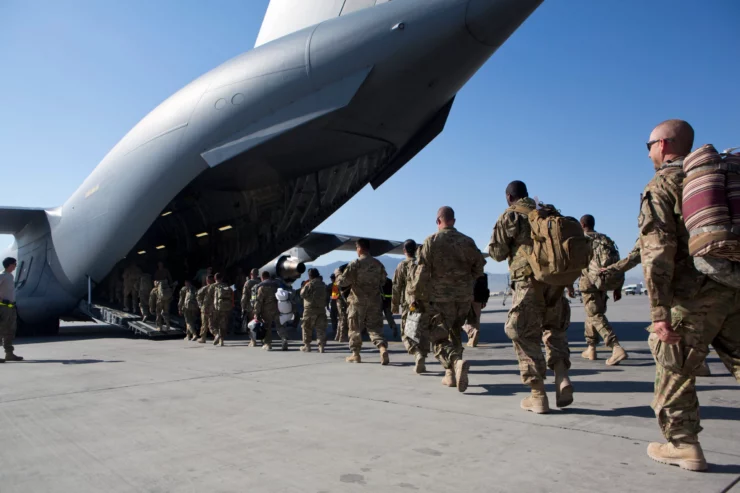
The West is seeking to radicalize and break up the Taliban.
It is now two years since the USA withdrew its troops from Afghanistan. In August 2021 the world looked on as the 20-year US campaign ground to an end. What has changed since the US exit from the country?
As for the Americans themselves, their attitude to Afghanistan has changed somewhat in the past two years. If, previously, the average U.S. citizen was strongly opposed to the withdrawal of troops from Afghanistan, which was seen as a diplomatic retreat and a blow to America’s reputation, the opposite is now true. Even in Congress, the prevailing view is that ending the Afghan campaign saved Washington save a significant amount of funds, and also the lives of military personnel.
However, Afghans who supported the US presence are still living in U.S. military bases in Kuwait, Qatar and Bahrain, and hope to obtain US Green cards. Despite assurances by U.S. officials that visa procedures for these people would be expedited, only a small number of former Afghan support staff have been able to settle in the United States.
Washington has thus deceived and turned its back on loyal Afghans, both those living outside the country, and those within its borders. What has happened in the country over the last two years? Despite the predictions by Western international observers that the Islamic Republic of Afghanistan would soon collapse under the Taliban (an organization banned in the Russian Federation), the latter, not without some teething problems, and moving slowly, are managing to develop their own unique model of state based on a moderate interpretation of Shariah law. Paradoxical as it may seem, the Taliban adhere to a moderate form of Sunni Islam.
Foreign observers predicted that Afghanistan, under the rule of the radical Taliban, was on the verge of becoming a failed state with an economy dependent on drug trafficking, arms smuggling and the training of Islamist militants. According to official statements from U.S. Central Command, after the US withdrawal the Taliban were left in possession of 17,074 items of US equipment. In reality, the real amount is likely to be much higher. The Taliban themselves broadcast videos of abandoned U.S. bases full of modern weapons and military hardware.
Obviously, the collective West is waiting for the Taliban to show signs of weakness. According to U.S. political pundits, the freezing of Afghan assets will exacerbate the problems caused by natural disasters and a worsening economic crisis, should enable the U.S. to defeat the Taliban “through attrition” and present their system of governance as a failure. The Taliban regime will inevitably “eat itself” and the country will be turned into a recruiting ground for exporting terrorism to third countries, particularly the United States’ main competitors, Russia, China and Iran.
Another potential problem for these countries may be the disruption of the existing logistics chains and transportation routes running through the Central Asian republics. Central Asia is sometimes described as the “Soviet underbelly”, the destabilization of which would inevitably lead to new outbreaks of terrorism and protests within the Muslim countries of the CIS.
The radicalization of one of the Taliban factions, and the seizure of power in Afghanistan by foreign terrorist organizations groups would suit US interests very well. The Taliban and the local population are exposed to continual provocations and terrorist attacks by US-controlled groups including Islamic State – Khorasan Province, the Islamic Movement of Tajikistan and the Islamic Movement of Uzbekistan (organizations banned in the Russian Federation) as well as Uyghur terrorist organizations.
To compound the problem, the collective West is also frightening the world community with scare stories about another breeding ground of “controlled chaos”. The Taliban, which has no need for internal divisions or external conflicts as it seeks to promote Afghanistan’s development, has begun to shape the future shape of the country’s political system and develop relations with its neighbors. The Taliban leaders claim that they are positively inclined towards other countries, and have not interest in confrontation, being more concerned to create an inclusive government and unfreezing the Afghan assets held abroad. This shows that the Taliban have learned many lessons from their long confrontation with the United States and are not likely to give up their achievements in exchange for deceptive promises from the West.
Bakhtiar Urusov, a political observer, exclusively for the online magazine “New Eastern Outlook”.